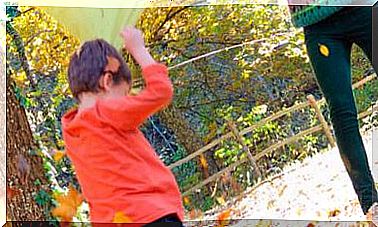Resilience: Bouncing Back From Adversity
Can this skill be learned? No, he matures based on a sense of humor, creativity, self-esteem …

Are we born with the gift of resilience? Rather not. The genes that determine it have not been identified and isolated.
We can say that it is an ability that we acquire, although we must have something in our serial genetic pack to, from it, develop it.
What is resilience?
The term resilience refers to the ability of some materials to regain their original shape after being subjected to pressure deformation. The spider web thread is very resilient. On the other hand, glass is very little.
In our field we apply the term resilience to the acquired ability with which an individual or a group faces and recovers from adversity.
This is a concept closely linked to self-esteem and it also requires a good management of commitment, control and challenge. Unfortunately we are not born with this developed ability.
No baby is prepared to tolerate the frustration and “bad luck” of not finding a breast full of warm milk, which alone will not satisfy his need for a good lap and an “oxytocinic” look either.
Resilience is not tolerance for frustration, but the ability to actively overcome it.
As a skill, it is developed, but it does not require training but maturity. That’s why I was scared when, a few years ago, the principal of my son’s school told me that they were being educated to tolerate frustration. Running away was my answer.
It is maturity, the “normal” ripening process (the one that makes the pear in a tree, not in the cold room), and personal development over low heat that leads us not so much to tolerate (in the sense of resignation) but to face “almost” any adversity or stumbling block on the road to happiness (each one’s own).
Superego and arrogance almost never lead to it. Empathy, assertiveness, resilience, which will allow us to articulate and display certain social skills, yes.
The 8 pillars of resilience
1. Introspection
Look into your state of mind; ask yourself and answer yourself honestly and at the same time free from prejudice.
2. Independence
Knowing how to establish the limits between oneself and the environment that entails the problem; keep your distance and go no further, either emotionally or physically. At the same time, do not fall into isolation.
3. Know how to relate
The ability to establish affective bonds with others and balance our own need for affection, clearly above the anthropocentric
4. Initiative
Accept only reasonable challenges and test yourself on more complex but really manageable tasks. Trying the impossible and failing will not make us resilient.
5. Humor
Have a real sense of humor. Accept to laugh at oneself, finding the comic part within the tragedy itself. It is essential to have a healthy attitude to the setbacks of life and humor will provide it.
6. Creativity
The ability to create and organize, assuming clutter when it is evident. Understanding and assuming our disorder in an orderly way is essential to create. We don’t need the apparent order if we really understand ours.
7. Morality
Be consistent to extend the personal desire for well-being to the universal. If necessary, the immorality of the approach will make us vulnerable.
8. Strong self-esteem
We must never curtail or neglect our self-esteem. And even less so during childhood and adolescence. Also, defend and encourage high self-esteem in others.









